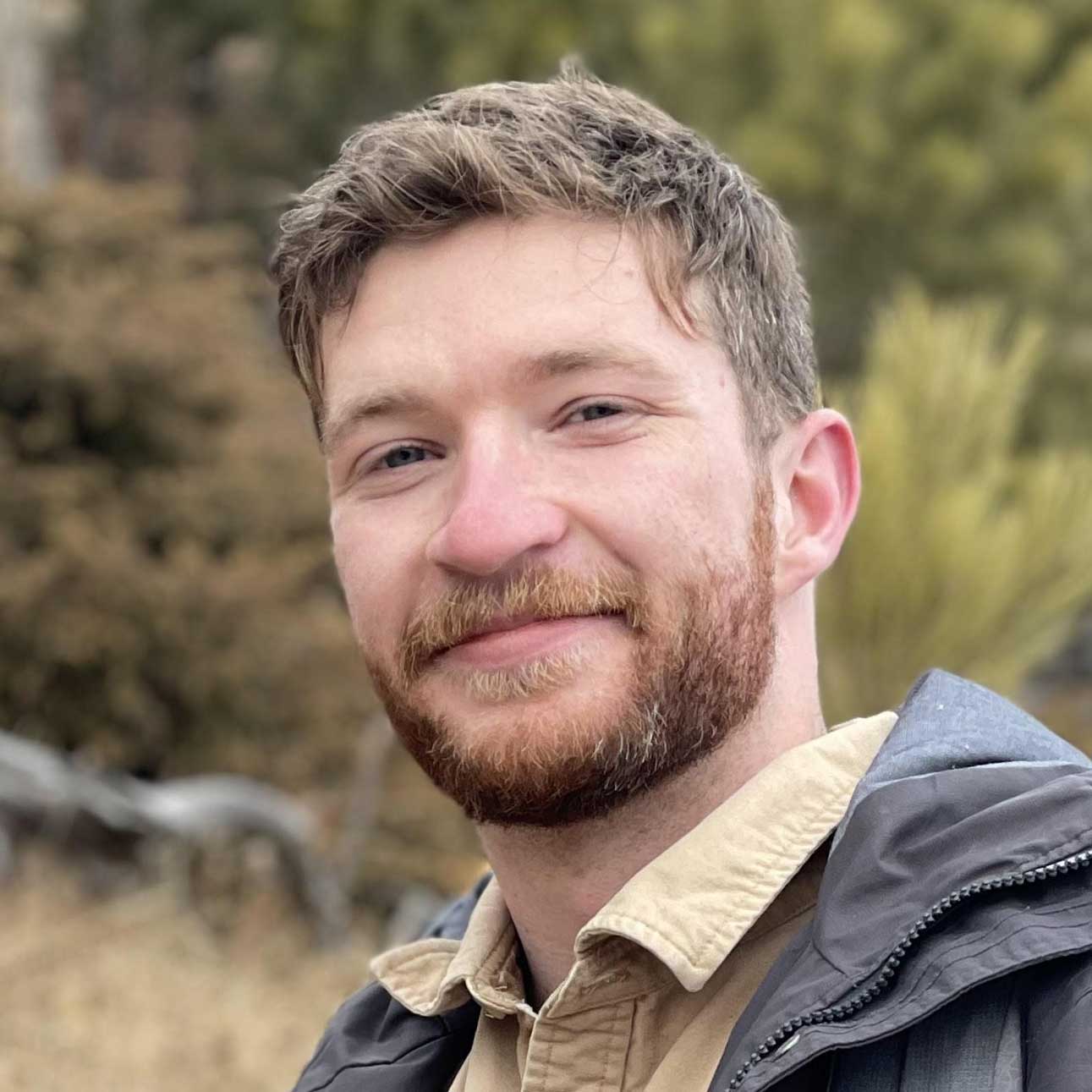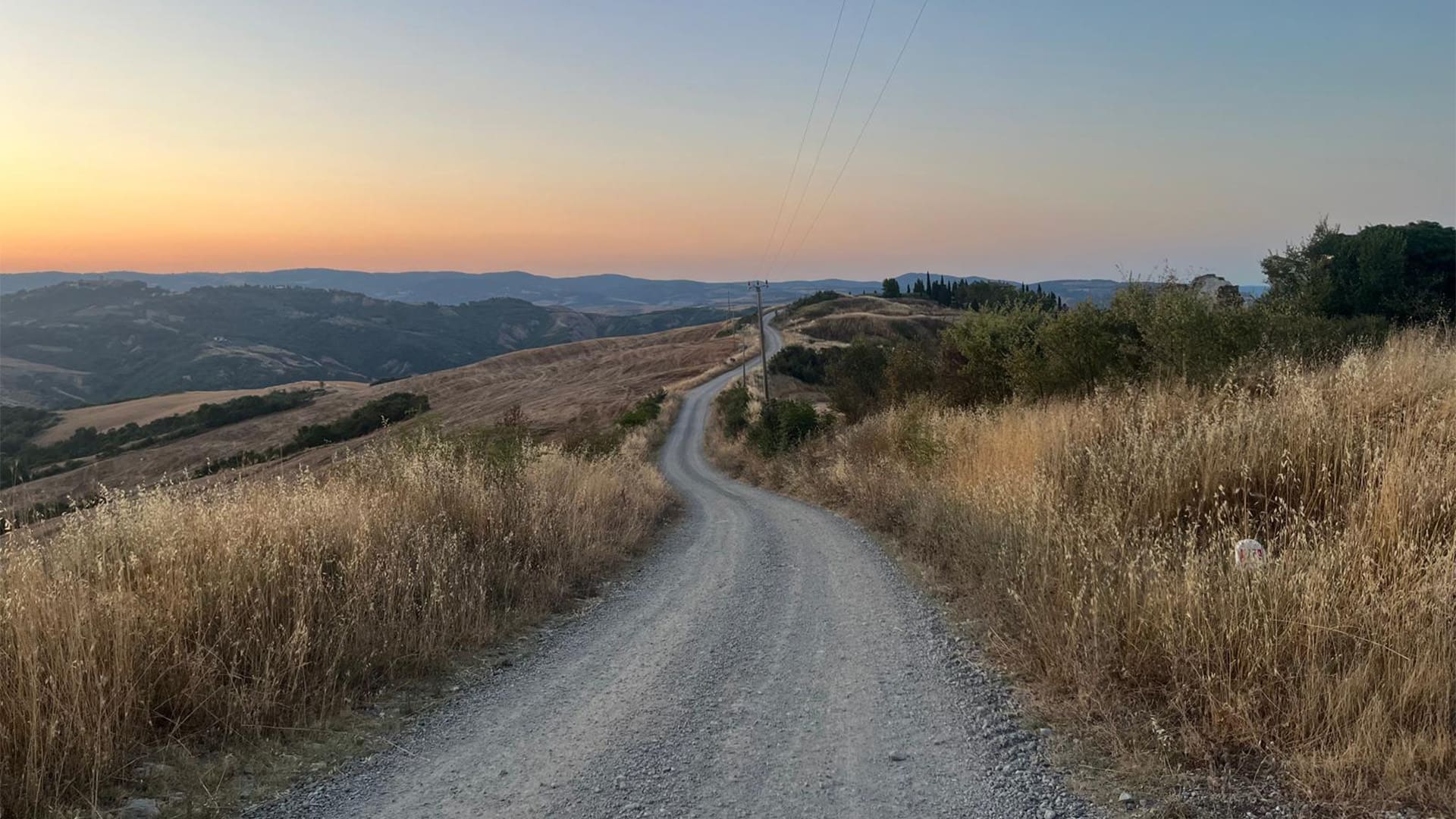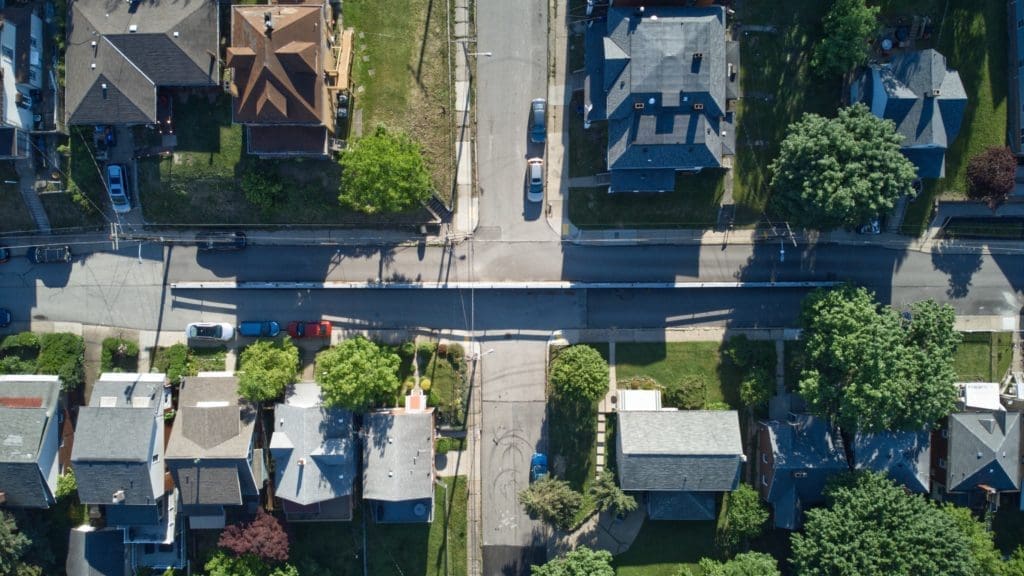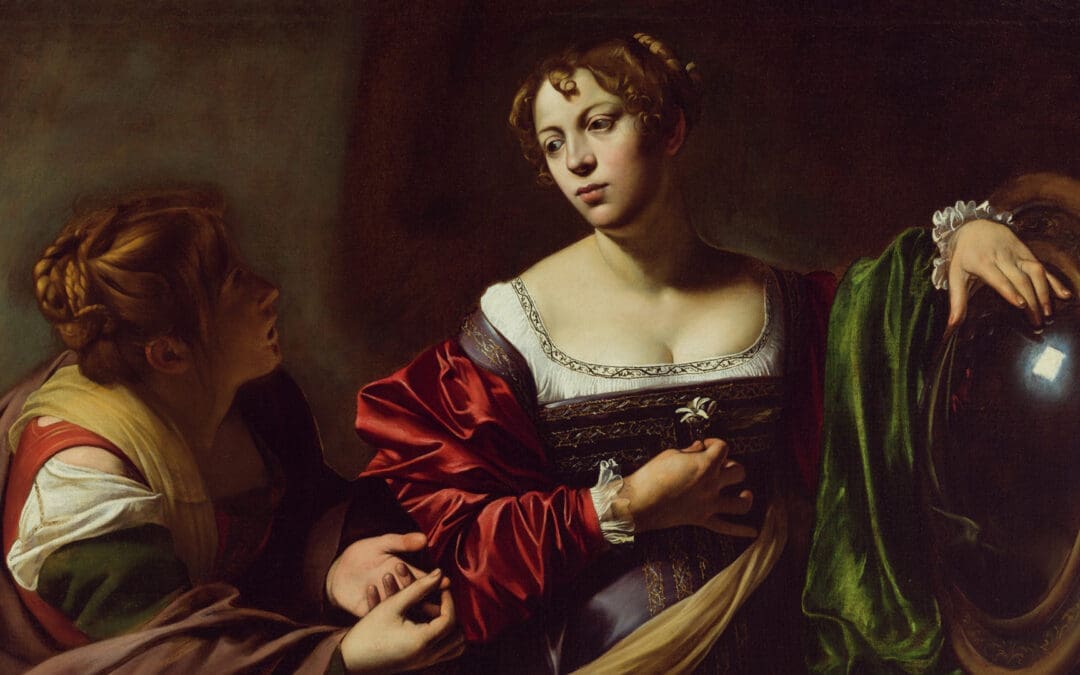U
Under the spreading of a great oak, against the darkling hills of Tuscany, I sat listening to an alchemist and a theologian in fervent debate. My friend and I were in the tiny town of Ponte D’Arbia, resting our beaten feet after a long day’s walk through the summer glare of central Italy. We were on pilgrimage, following ancient footsteps, from Geneva to Rome. Some thirteen hundred years ago, Sigeric, the archbishop of Canterbury, had passed this way on his trip to meet with the pope. Since then, thousands of pilgrims’ feet had trodden the same dust, and here were we, under the stars, with a sort of poet-wizard and a white-bearded scholar debating questions of metaphysics and salvation. It was a beautiful slice of eternity. We could have been any foursome of travellers along this road, in any age, among these same fields of wheat and under this same dome of sky, discussing eternal things.
My friend, Father Reed, and I joked that on this journey we had pinched together the fabric of time and somehow entered the Middle Ages. We encountered three young Spanish troubadours who carried guitars as they hiked, a wandering Englishwoman who had come from sleeping in the forests of France, a Moroccan Berber who was suspicious of everyone, many delightful old innkeeping couples who sent us off with vittles for the road, and, one evening in Milan, a cast of characters from around the world that could have been from the Canterbury Tales.
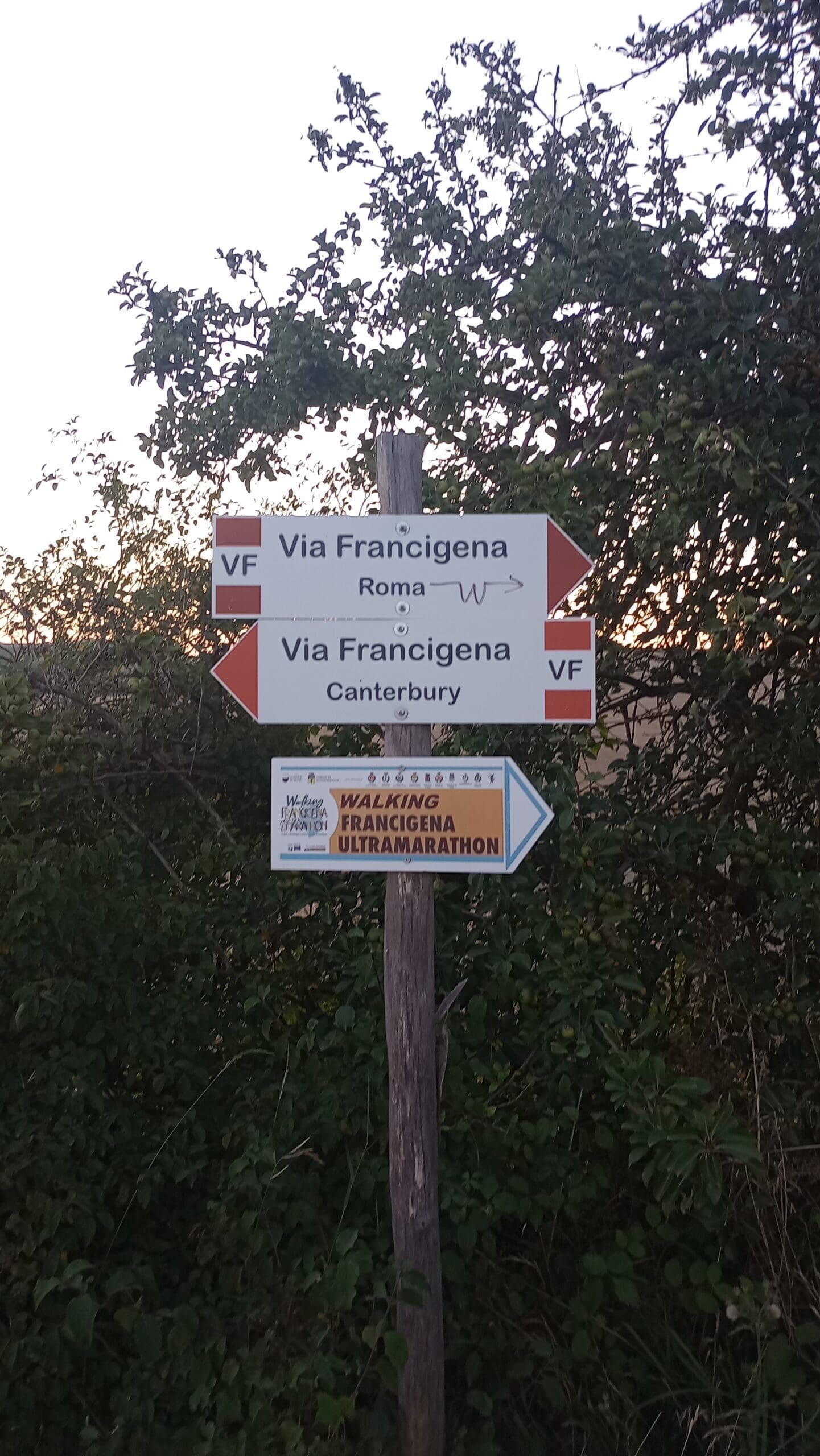
But this night in Ponte D’Arbia was perhaps the most timeless. On my left sat Roberto, puffing on a short cigar. He had studied theology at the Pontifical Gregorian University in Rome, and he drove down to Tuscany from Milan on weekends just to cook and care for pilgrims. On my right were Father Reed and Jeanatan, the alchemist. He had walked from his picturesque farm in Switzerland, where he grew his own tobacco, of which the three of us happily partook.
Roberto and Jeanatan, going back and forth in Italian, with much pinching of fingers and clasping of hands, were arguing about whether the world was best described in terms of form and substance (Roberto) or waves and energy (Jeanatan). This might sound obscure and academic, but it was passionate. They argued as though all our lives depended on it. Ultimately it came down, I think, to a difference in language; both men were trying to say that we encounter God in reality, including in the most mundane things of nature. The disagreement was punctuated with exclamations of “Ma, che bello!” or “Bellissimo!” when they found points of concord.
What was more striking than the content of this conversation, however, was the contrast it represented to those Father Reed and I sometimes encountered when we briefly stepped off the pilgrim way. In those cases the focus inexorably moved toward the newest TV shows, the most stylish restaurants, and the most fashionable causes. These conversations gave us a sense of drift, of malaise, of flatness and staleness, and in them we recognized the parts of our own lives that were stagnant, not reaching for something more. They seemed to us a manifestation of despair. Among the young pilgrims we encountered, however, a sense of purpose, desire, and intention lit their faces. My companions under the oak tree were alive with passion for the truth, with a sense that reality meant something wonderful and that each had a personal stake in it. Despite their disagreement they shared an intuition that all of us were on a pilgrimage whose meaning was too deep to be grasped in words.
But the malaise we encountered is not uncommon. I have lived in Washington, DC, in Chicago, in Philadelphia, and have often found myself under its sway. The real difference in the world is between those who are on pilgrimage and those who have not yet found the trail.
The real difference in the world is between those who are on pilgrimage and those who have not yet found the trail.
On a July day in Iowa, Father Reed and I stood in the Des Moines River and marked the beginning of this cammino by shaving our heads, in imitation of the holy men of the East and West down the ages. Then we boarded a flight to Switzerland and, after a few twists and hiccups, set off on foot from Bourg-Saint-Pierre in the hills of the Swiss Alps, heading Rome-ward.
In preparing for the journey, I had tried to memorize T.S. Eliot’s long poem Choruses from “The Rock.” The famous travel writer Patrick Leigh Fermor passed much of the time on his walk from Holland to Istanbul by reciting Shakespeare, Homer, and other classic poetry to himself along the road. I don’t have the capacity of memory Leigh Fermor did, but I did manage to commit a few stanzas to memory before we hit the road. As we rested on the roadside, I would share lines with Father Reed. Its beginning, though a bit dismal, served as a fitting contrast for alpine glory.
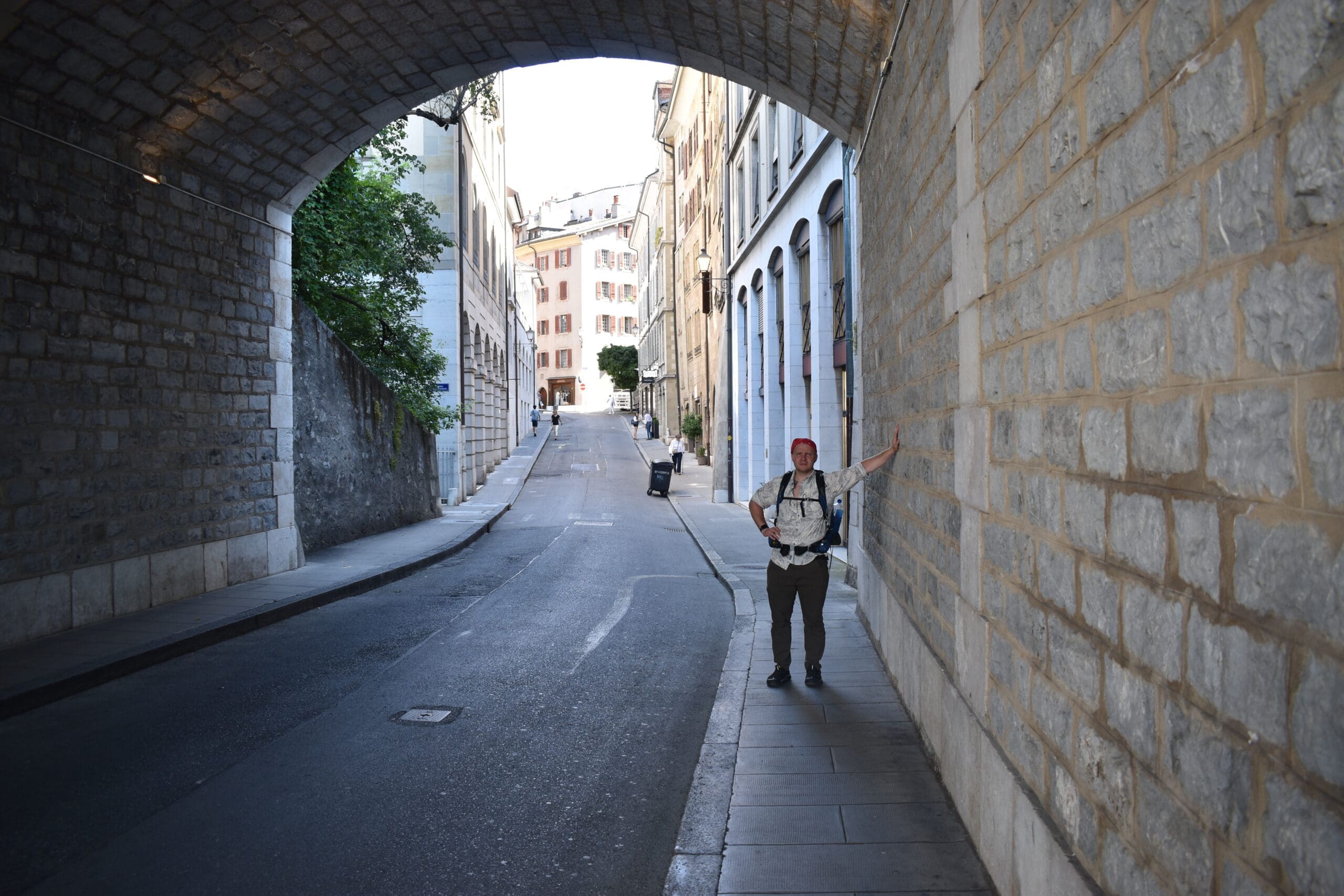
The lot of man is ceaseless labour,
Or ceaseless idleness, which is still harder,
Or irregular labour, which is not pleasant.
I have trodden the winepress alone.
Both Reed and I were coming off a year fraught with stress and difficulty, and the worries within us rang like bells over the mountains. At the same time, we heard other bells. Up in the treeless heights, big-horned cattle with thick leather belts and bells around their necks lowed along to the music of copper clanging. The Swiss seem to have found no place they cannot farm. Vines grew on near vertical slopes, and now and then a curious goat clopped up on a prominence to gaze on us with his weird, rectangular pupils.
As we ascended, the green velvet of the forests dropping below us, the little purple succulents growing around our feet, and the cobalt summits rising all around, the labour and idleness of life seemed a little more distant, as if chips of it were blowing off us in the mountain winds. We had a purpose, a direction—a nice, simple one. We were walking to Rome. What was there to do? March and keep marching until we found Saint Peter. And in the huffing and puffing up the ascent with big heavy packs, there wasn’t much to think about except the little beauties at our feet, the ice-cold streams that ran over the pebbles and our toes, the tufts of grass, and the great big beauties that revealed themselves in the visioned valleys rolling out behind us when we paused to rest and turn around. A rest, some cheese, some dried fruit, some tobacco, and Lauds. Simple.
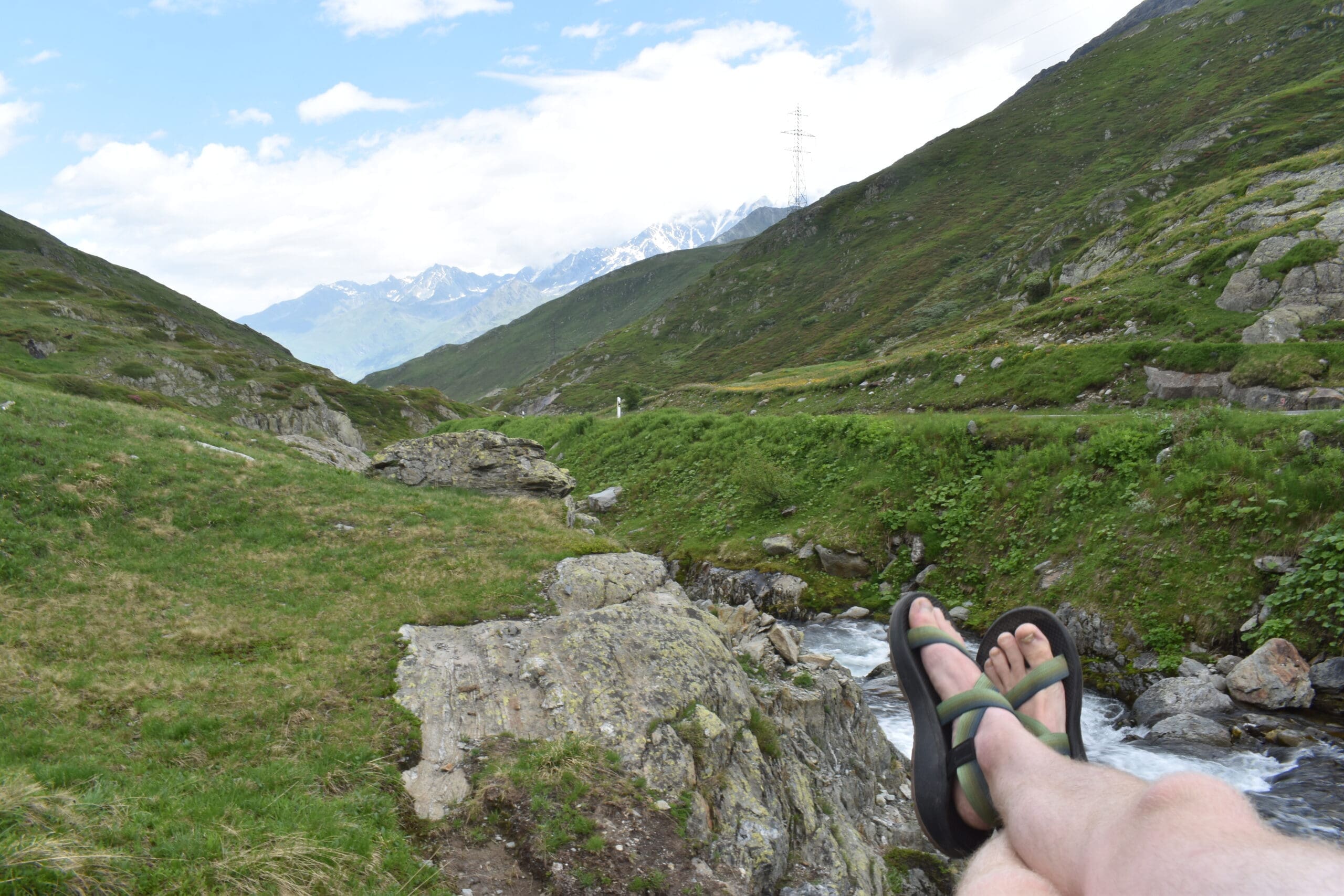
We crossed, finally, over the gap of Great St. Bernard’s Pass, stopping for lunch and a chat with the Swiss at the great old monastery (or as they call it, the Hospice) before crossing into Italy and beginning our descent toward Aosta.
After days of small villages, we descended the slopes of the Val d’Aosta, luxuriously green and thickly decked with dark pines. Every house overflowed with marigolds and other flowers. The signage along this way is not very good; very few people take this path compared to the Camino de Santiago. But somehow, through orchards and fruit groves and tall grass and backyards, we found our way until, finally, we came to a path marked by little pilgrim lamps, and we knew we were headed into the heart of the city.
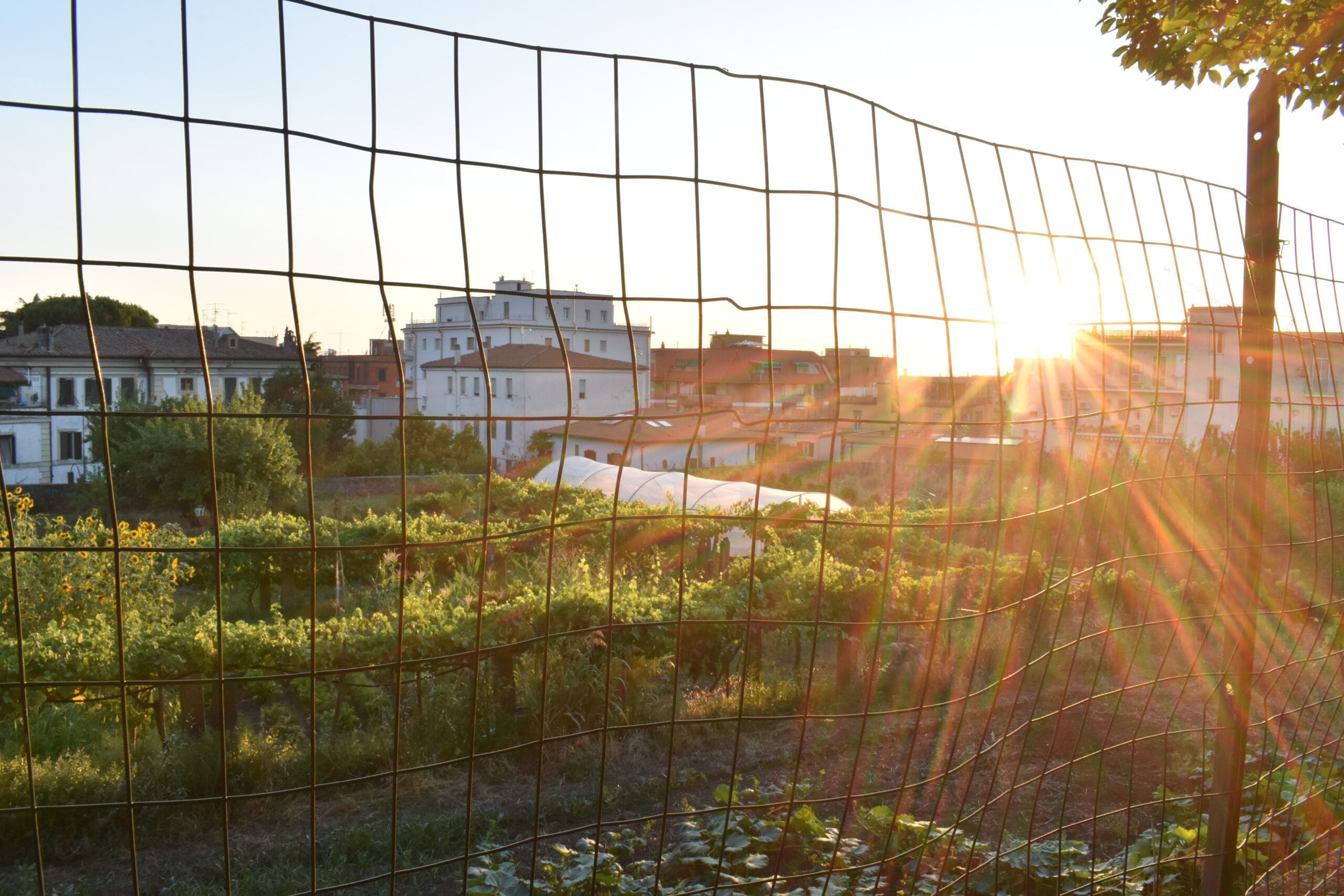
Once there, with great relief, we picked up meat, bread, and cheese and ate it on the curb. It turns out that the famous Saint Anselm of Canterbury, who wrote that thundering declaration Why God Became Man, was not of Canterbury at all, but of here, of Aosta. In the central piazza we sat as families strolled by, and we talked of the wound of beauty. Why did the mountains, the churches, the people bring us both delight and a strange heartache? Out of a desire to be united to them, we decided. Out of an inability to fully take them in, out of the need to leave them behind. Somehow, Anselm had thought, God wanted that unity with us, and he had the power to do it, to unite human and divine natures in a single person.
In a small bookshop they had plenty of copies of Anselm, and Reed bought one. They also had the writings of Luigi Giussani, an Italian author I’d heard of, and though we hated to add more weight to our packs, the bread of knowledge smelled too good, and we walked out a little heavier.
Giussani was a high school teacher who had taught many years in nearby Milan. In his Senso religioso, he describes the effort to attain the truth as a kind of cammino, a path. Different kinds of truth are attained by different paths. Mathematical or logical truths may be arrived at by the path of logical demonstrations, but the truth about life, he thought, could be arrived at only by the path of encounter with reality in its many facets. It can be found only by the intimate knowledge gained by facing reality with openness in the course of our ordinary lives. This meant, for him, wiping away the grime of ideology and preconceptions and seeking to touch reality as it is. We tried to do that as we walked and talked.
Before departing Florence-ward, we made a spontaneous decision to take a train to Milan, where neither of us had ever been. It is a city with many contradictions. Wealth and luxury sit alongside poor migrants as well as old treasures of art and the spirit that lingers with them. We saw the dazzling white façade of the duomo, visited the tomb of the great Cardinal Borromeo in the crypt, and looked at the moving paintings in the Pinacoteca. That evening we stayed at a hip hostel near the train station, where, without our prompting, we found ourselves engaged in a spiritual conversation with some of the other young people: an American from California, a Parisian, a woman from Lyons, a girl from Russia.
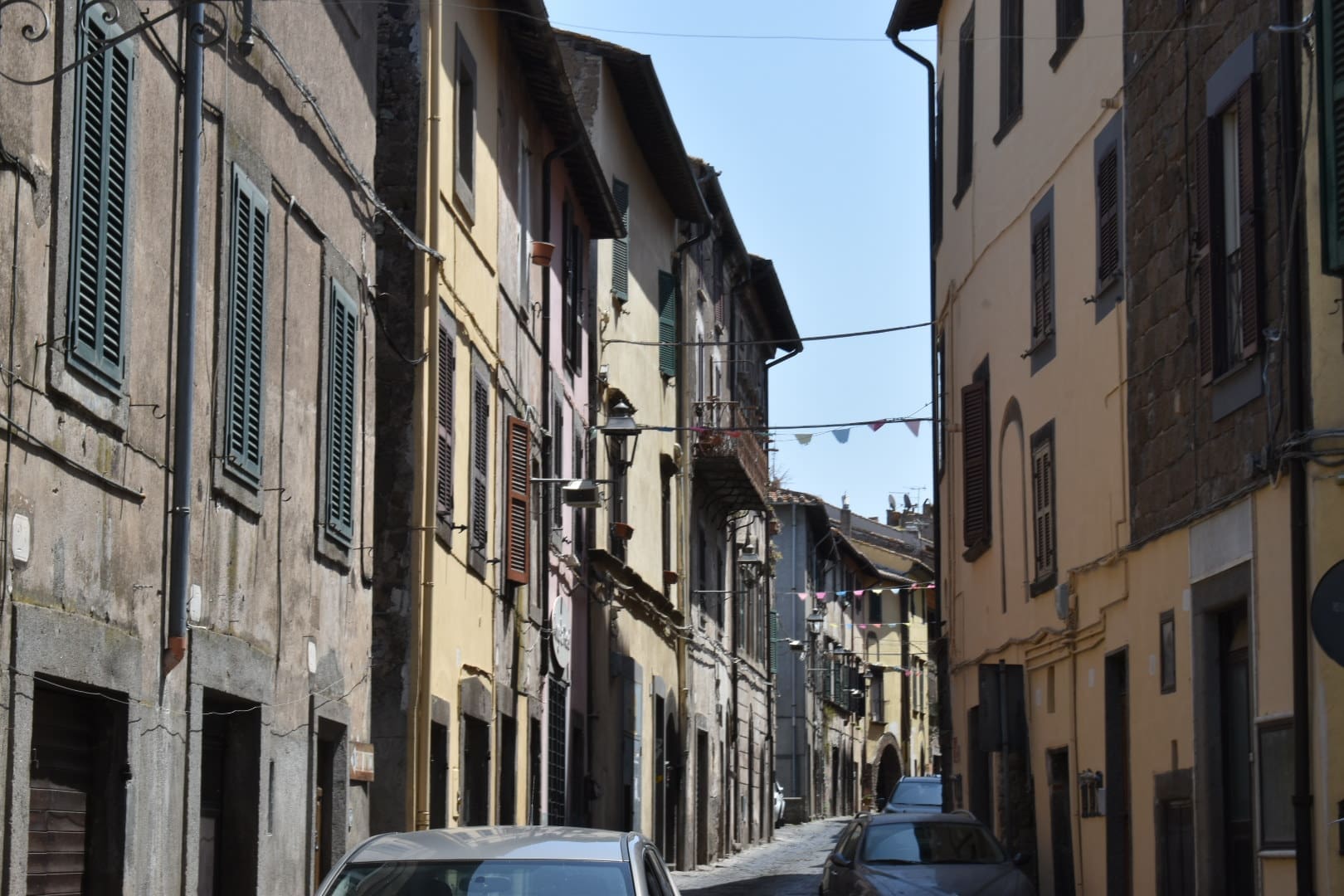
“Why do you go on a pilgrimage—it doesn’t make any sense!” one of the girls said. “How can you achieve anything special by walking to a certain place that I can’t achieve by just being in my apartment and being a good person?” I tried to answer that it marks a separation from ordinary life and ordinary time, a chance to pray, meditate, ground oneself in what is important. She wasn’t convinced. “I don’t think religion is necessary for that at all. I believe that all people are basically good deep down, and we just need to be good and we’re fine. I don’t have to believe in some god who is spying on me and watching me and will send me to hell.” She believed in some kind of energy, or “the divine,” or “the universe,” but saw religion as only destructive. She hinted that some resentment of her Hindu parents was involved in her current beliefs. I offered that, for many religious people, it is not a fear of hell that motivates but the notion of being fully loved and accepted by the Maker of the universe. Our conversation was cut off by the arrival of some rowdier Australians, Germans, and others. Our conversation with these women had been an expression of that universal human yearning for the real, for the meaning of things. Even the denunciation of religion expressed a desire for truth. But with the arrival of the larger crowd, conversation reverted to the superficial talk of drinking too much and sleeping with strangers.
Several of these newcomers emphasized how much they hated the places they came from. Travel, it seemed, was more about running from something than seeking something. Rick Steves, that famous travel guru, distinguishes between three kinds of European visitors. There are tourists, who are simply looking to check the big sites off the list and have a good time; travellers, who are seeking real contact with culture and history; and pilgrims, who are looking, perhaps, for God. Steves, a devoted Lutheran, hopes to be among the pilgrims. Each of us, perhaps, has been on each sort of journey at different moments in our lives.
While we enjoyed chopping it up with some of these strangers, the turn toward talk of drinking, sex, and consumer desires jarred with our experience on the pilgrim way. We left feeling weighed down and eager to rejoin the trail.
The desert is not remote in southern tropics,
The desert is not only around the corner,
The desert is squeezed in the tube-train next to you,
The desert is in the heart of your brother.
Several days later, we found ourselves in glorious old Siena. We took in the great striped duomo, the piazza where the famed Palio horse race had just been held, and the mighty Palazzo Pubblico, which stood over it. High up on the palazzo was the symbol of the city, the letters IHS (the first three letters of the name of Jesus in Greek) within a blazing sun. It had been created by Bernardino of Siena to adorn public buildings as a substitution for symbols of Roman power and the emblems of rival political factions. There is only one thing that gives this city meaning, it seemed to say, and it isn’t power or politics.
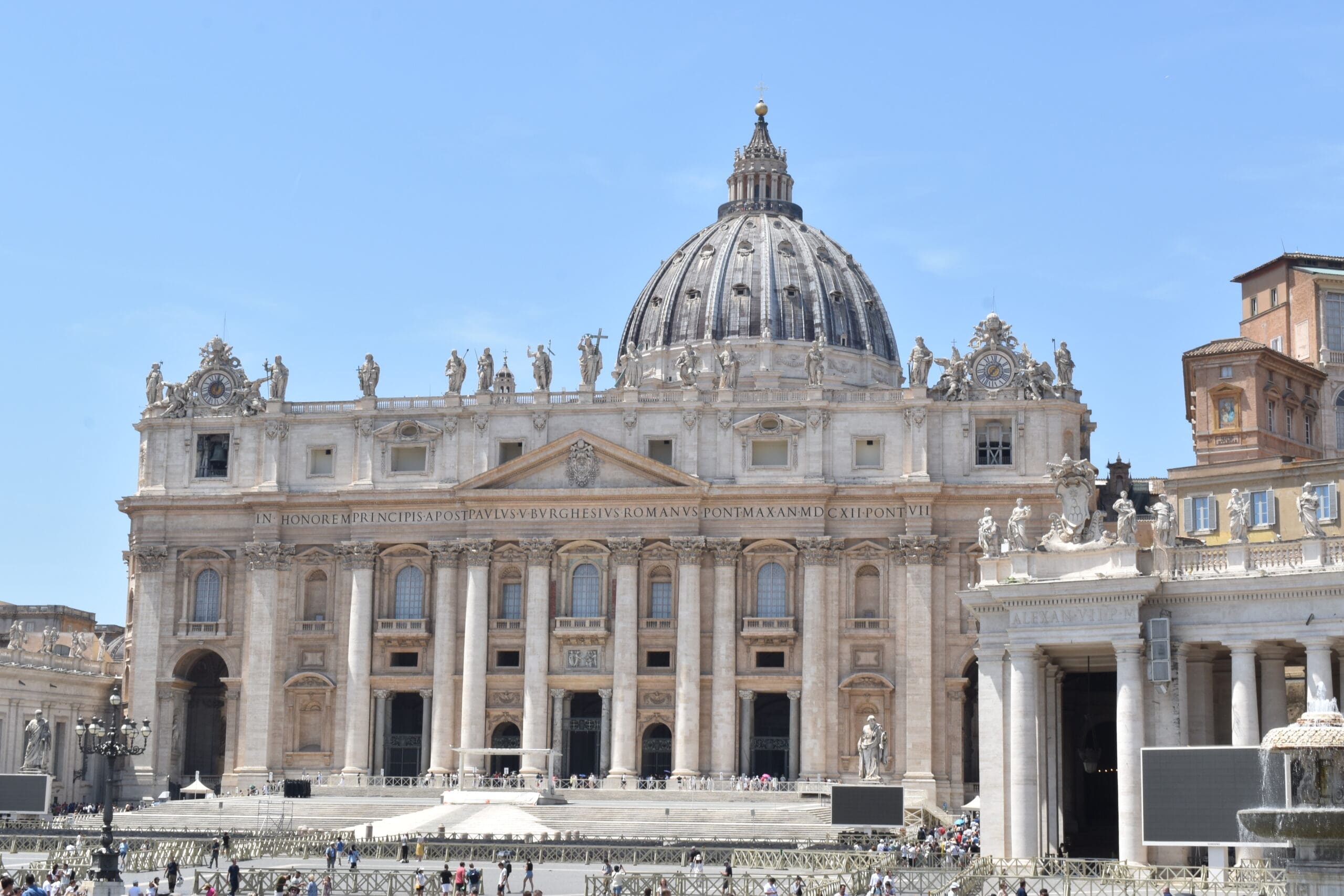
Not long after that we met Jeanatan. A long-haired, bearded man in his thirties, sundried as the peppers on a panino, Jeanatan seemed to have been on cammino for years. He gathered fruits and nuts that he said alchemists used to use, and told us, with a flourish of the fingers, how they were revered for their power to “open up the material.” He collected little heart-shaped stones from around Europe as he walked, and gave two to Reed and me. All this talk of alchemy might make you think this fellow was crazy or an oddball, but he wasn’t. He was, by all accounts, amiable and down to earth, and very intelligent. We never knew how seriously to take him when he said, with a smile and a raise of the eyebrows, “Io sono alchimista.” But whenever we ran into him, which we did frequently from village to village, he would shout, “Ciao, ragazzi! Bellissima! Gioia! Hallelujah!” sometimes following his declarations with a few lines of the Regina Coeli.
For Jeanatan, pilgrimage, cammino, was a way of life. He pointed out to us that the French word for cammino, chemin, is the root of the word cheminee, or chimney, indicating that the idea of pilgrimage and the idea of home have always been bound together. Fireplaces were designed to welcome travellers and bring them home. Pilgrimage was pilgrimage somewhere, and Jeanatan was happy to be a pilgrim, because he knew he was headed somewhere good.
The idea of pilgrimage and the idea of home have always been bound together.
By our normal societal lights, this pilgrim might have seemed a drifter, but it was our own cohort, the young people in large urban centres advancing in their well-paying careers, who seemed to us to be the drifters. Jeanatan had his mission: gathering knowledge, celebrating the beauty of nature and of fellow travellers, and walking toward God. He was on pilgrimage. Many of us and our peers are not.
A Cry from the North, from the West and from the South
Whence thousands travel daily to the timekept City;
Where My Word is unspoken,
And the wind shall say: “Here were decent godless people:
Their only monument the asphalt road
And a thousand lost golf balls.”
Our walk continued up and down the hills, through the tall cypresses and fructifying vines of Montalcino and Montepulciano. Patrick Leigh Fermor called his first book A Time of Gifts because on his long walk to Istanbul he found strangers in foreign lands continually caring for him and taking him in. As we neared Rome, we heard more and more wishes of “Buon cammino!” shouted by people on the street; moms honked and smiled from their cars. When we were lost and walking in the wrong direction and feeling sick from heat, an Italian man named Jeremiah cheerfully drove us twelve miles to where we needed to be (our third free ride from a stranger). In Vetralla, a man explained to us the history of his home and his village while his wife ran inside to get a jug of water and a can of chips (“You need the salt to stay hydrated!”). In Bolsena, a gentleman bought us coffee and water to revive us after a long march. On the summit of Radicofani, we sang with a group of Spaniards. Roberto and Giovanni made us pasta in Ponte D’Arbia, Aquil shared his prized Val Santi in Torrenieri, the nuns of Viterbo made Father Reed a birthday cake. And Jeanatan gave us our heart stones. A time of gifts indeed.

In Sutria, we ate huge pizzas with Jeanatan and Alvaro, a pilgrim from South Africa of Portuguese origins. Communicating as best we could in my broken Italian and French (and Reed’s good Italian), we pondered the image of the cammino in the light of the rising sun, which greeted us each morning as we made our way east. The sun, Jeanatan said, is like God, always shining on us the light of love, but we so often turn around, looking not to God but to our own shadow, to the unreal shade of our own egoism. The devil, he said, is like a shadow cast by the refusal of God’s love; he has no light of his own.
I shared an image too, from a poem by Wendell Berry that describes life as a journey toward the light, which, being so bright, obscures what lies ahead. We make pilgrimage in uncertainty and mystery, not knowing exactly what lies ahead or what the things around us mean. But as we make progress, we see that all which once puzzled us is now lit by the golden light of love, and that all these things are held in God’s timeless providence. I imagine it was the first time the Kentucky farmer was ever translated into bad Italian in Sutria. Coming off a year of stress, uncertainty, surprise, and pain, it was that mystery which drew Reed and me on.
Then came, at a predetermined moment . . .
transecting, bisecting the world of time,
a moment in time but not like a moment of time . . .
and that moment of time gave the meaning.
Then it seemed as if men must proceed from light to light,
in the light of the Word,
Bestial as always before, carnal, self-seeking as always before,
selfish and purblind as ever before,
Yet always struggling, always reaffirming,
always resuming their march on the way that was lit by the light;
Often halting, loitering, straying, delaying, returning, yet following no other way.
Some days later, desiccated by the summer heat, we removed our sandals and walked into Saint Peter’s Square, kneeling after the fashion of countless pilgrims down the ages, and giving thanks. We had both been here before (Reed many times), but having walked hundreds of miles to her doorstep, we thought she looked different, that old church. Above her proud dome shone the blazing, fiery, scorching sun.
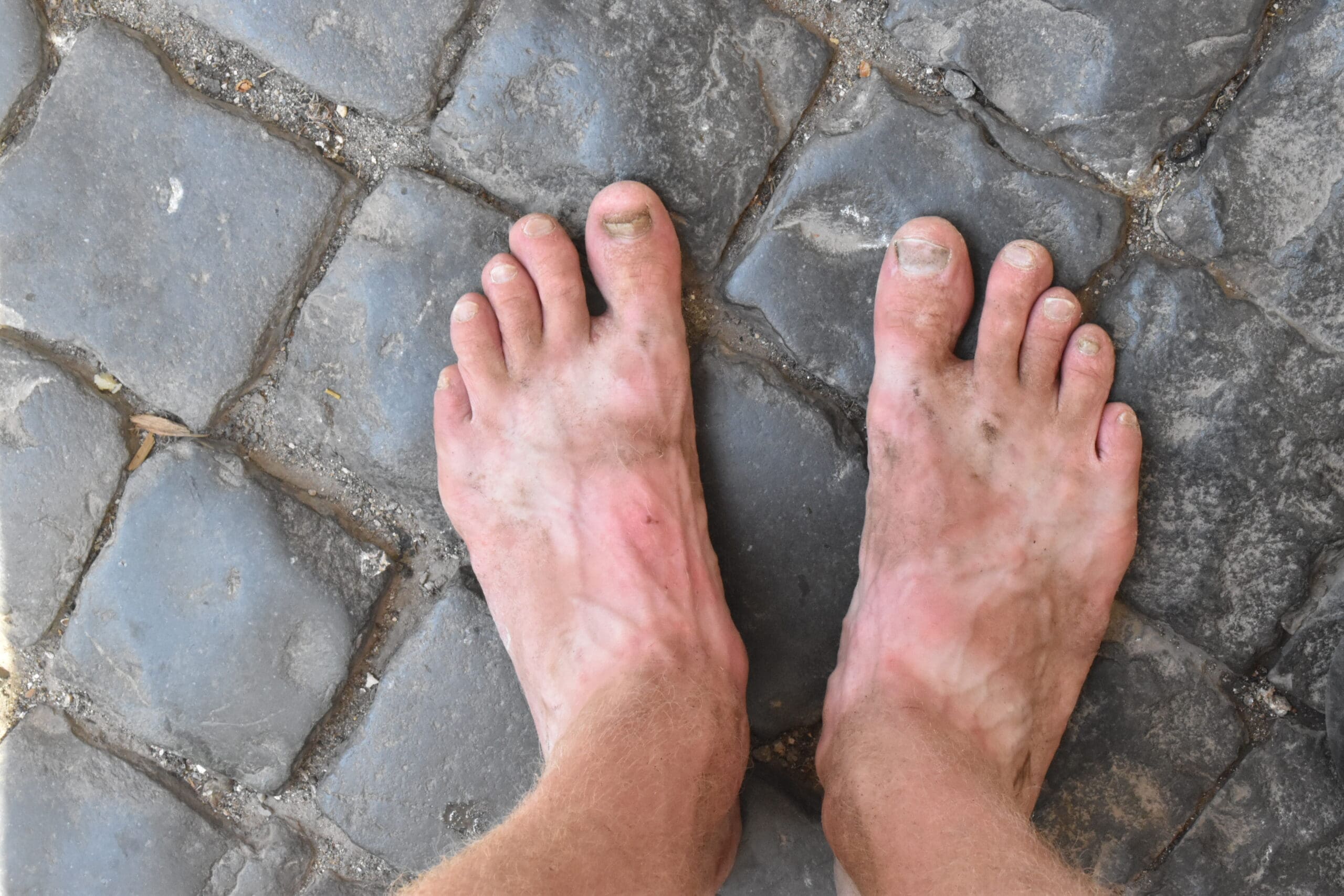
For T.S. Eliot, the answer to modern malaise was good work. That seems so simple, but men and women need a reason to build, and something worth building, in order to give their lives mission and meaning. We have neglected “the Temple,” he says, in favour of the golf course, the workplace, and the tennis court. The work of man is to construct that temple—not just the physical building but the kingdom of God on earth, meaning a society of love, justice, care, truth. The temple is the end to which we are travelling, and it is a gateway to what Father Giussani would call the Mystery. As Father Reed and I stood in Saint Peter’s Square, we gazed up at the marvel of Michelangelo’s architecture, to which the great craftsman had dedicated the fading years of his life as a kind of prayer, accepting no payment.
The soul of Man must quicken to creation.
Out of the formless stone, when the artist unites himself with stone,
Spring always new forms of life . . .
Lord, shall we not bring these gifts to Your service?
Shall we not bring to Your service all our powers
For life, for dignity, grace and order,
And intellectual pleasures of the senses?
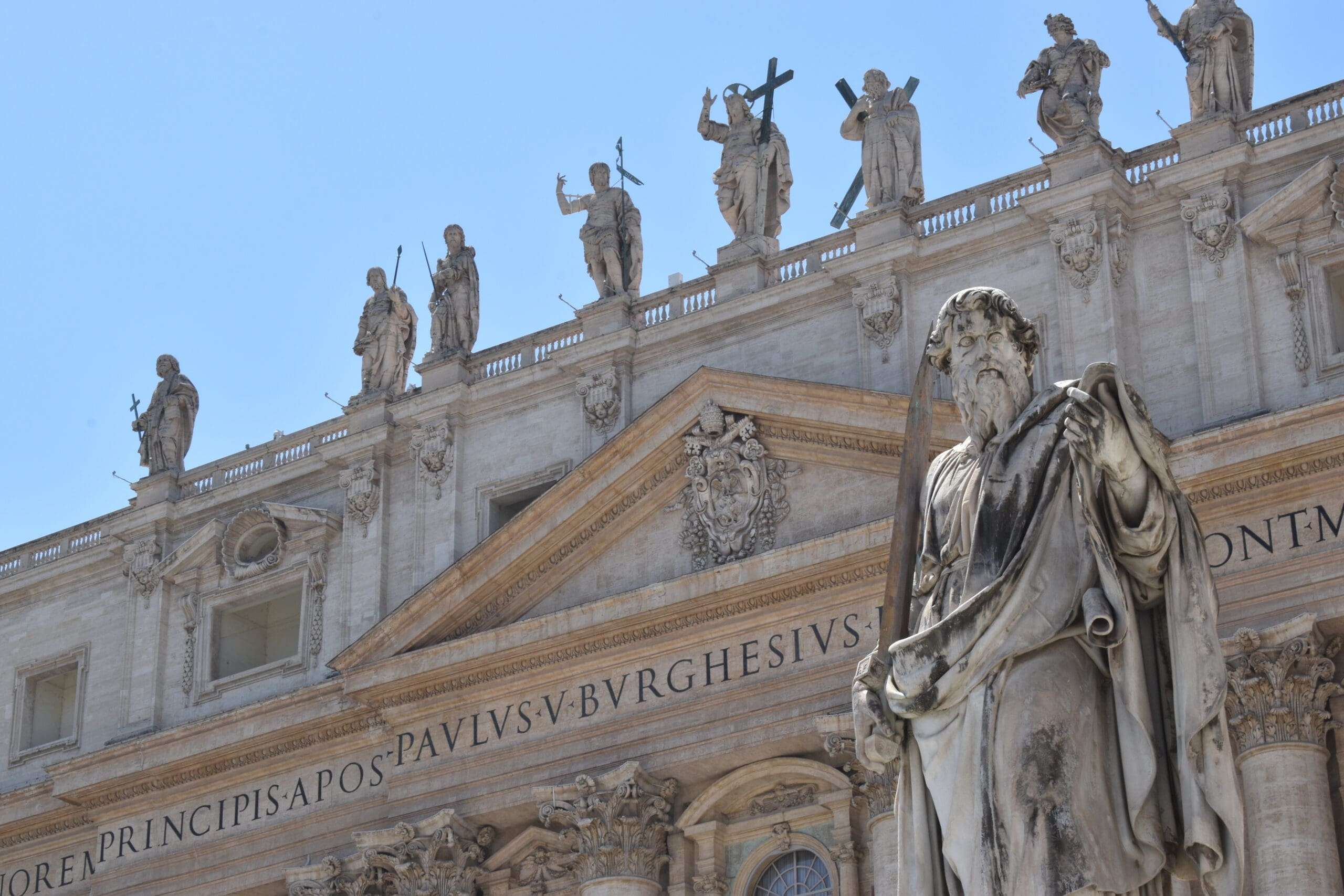
Our friends at the hostel in Milan saw faith as a kind of constriction, as a cowering under the arbitrary demands of tyrannical tradition. True, this can be what faith looks like. For Eliot, though, faith gives us the freedom to live, to move, to have our being, rather than drifting along the currents of meaningless achievement, acclaim, and the accumulation of unsatisfying goods. One does not have to spend all one’s energy chasing these disappointments. No, the promise of faith is a foundation for life, for dignity, grace, and order, and for the intellectual pleasure of the senses.
Our pilgrimage came to its real end at the very tomb of Peter, at the hole in the ground where the early Christians hid his bones from Roman tyrants. It now sat in a dim, golden, gilded little chapel, where, with the Spaniards and a few nuns, we had Mass. Life on pilgrimage means seeing the world lit with a higher light. The beauties of Saint Peter’s strike even the doubtful and disaffected with a moving sense of the great Love that lies unseen. Even this ancient mound of dirt where the bones of the old Semitic fisherman lay somehow seemed warm and alive.
Luigi Giussani, in his Senso religioso, writes of the way in which, if we pay loving attention to reality, we can see it filled with divinity. “What is the form of our journey to ultimate meaning? To live the real. . . . It would not be, in fact, human, that is, reasonable, to consider experience in a way limited to its surfaces, only looking at the crest of the wave, without diving into its depths.” For Giussani, “living the real” means responding to a reality in a way that does not rule out the fundamental intuitions of our hearts. When we encounter reality, he said, it is as though our hearts are awakened by a voice that points us to some mysterious, higher meaning. This voice lends significance to what we see on earth. It is the connection to the divine, the eternal, that makes the world of history and time meaningful, that fills all ordinary things with the light of the timeless and true.
Life on pilgrimage means seeing the world lit with a higher light.
Our modern sadness, Giussani and Eliot would agree, comes from cutting reality off from any higher meaning, from any real significance beyond us. Things become flat; life becomes a desert. But here, in the old tomb among the flickering lamps of the temple, there is a light that, if we can believe it, might spread out and illuminate all things: forests and woods, work and play, life and love.
It is hard for us moderns to find faith, but we may start, at least, by not foreclosing the mystery of things, not attempting to settle the stirrings in the heart of something higher. From these, perhaps, we can draw the meaning of good work, we may regain the sense of life as a meaningful journey, we may play our part in building a world of grace, dignity, and beauty. We might hope that all of it is somehow held in the heart of eternity.
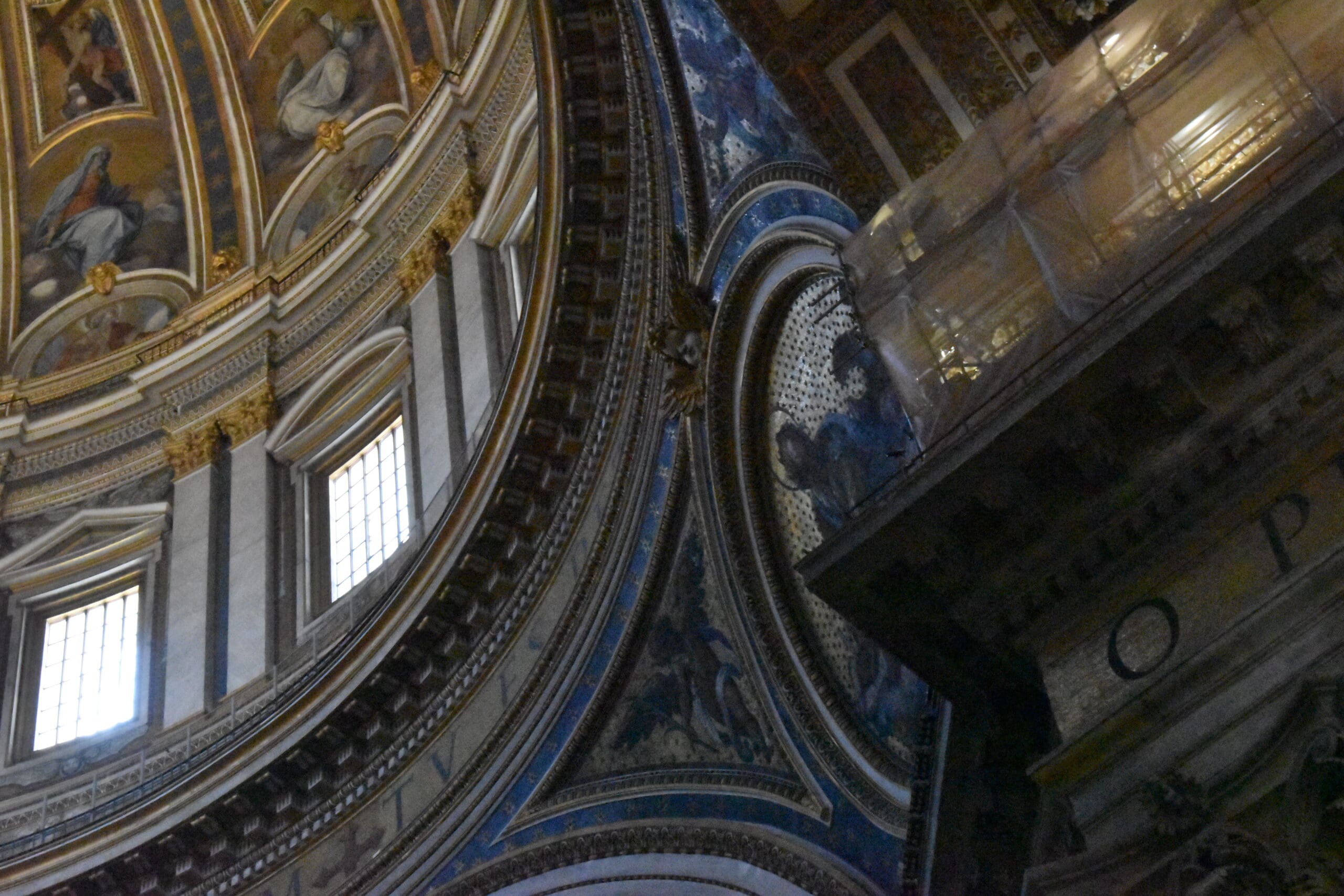
This journey did not fix all our problems; it did not banish all doubt or leave us without grief and sadness. But it gave us a taste of, a taste for, that life of pilgrimage, which, as the old pilgrim song says, might bring us at last to true freedom.
The Lord who created must wish us to create
And employ our creation again in His service . . .
Light
Light
The visible reminder of Invisible Light. . . .
We thank Thee for the lights that we have kindled,
The light of altar and of sanctuary;
Small lights of those who meditate at midnight
And lights directed through the coloured panes of windows
And light reflected from the polished stone,
The gilded carven wood, the coloured fresco.
Our gaze is submarine, our eyes look upward
And see the light that fractures through unquiet water.
We see the light but see not whence it comes.
O Light Invisible, we glorify Thee!
